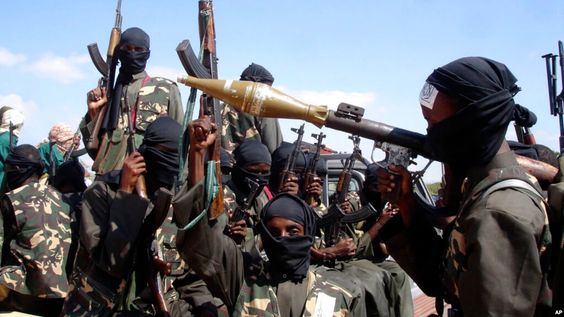Africa
Military shipments bound for Al-Shabab were allegedly intercepted by the Somali government

The National Intelligence Agency (NISA) of Somalia announced on Thursday that it had intercepted two illegal shipments of military equipment and explosives that were ostensibly headed for the al-Shabab extremist organization.
The agency discovered the weapons near the port and airport of Mogadishu, according to Somalia’s State Minister of Defense Mohamed Ali Haga at a news briefing.
Haga stated that NISA personnel at the port of Mogadishu “found a shipment of military hardware and explosive materials concealed within containers posing as authorized business imports.” At Mogadishu’s Aden Ade International Airport, our forces “have [also]seized military equipment.”
NISA said in a statement that 10 people connected to a network of smugglers were detained as a result of an investigation into the illegal shipments.
The activities of these people in Somalia and elsewhere have been monitored by our agency, according to Haga. Their participation in this network of smugglers has been observed. The good news is that none of them have escaped and are all in prison.
The components of the intercepted shipments, their origin, or the identities of persons involved were not disclosed by Haga or NISA in any greater detail.
Arms ban
In 1992, a civil conflict and sectarian violence led to the United Nations Security Council placing Somalia under an arms embargo.
Open borders and a more than 3,000-kilometer-long unprotected coastline are features of the nation.
The successive governments have been attempting to reestablish stability, good governance, and other standards that would let the nation’s arms embargo be loosened since the installation of a viable transitional government in 2012; they have also been striving to reduce corruption.
The United Nations Security Council decided in 2013 to partially remove its embargo on the sale of guns to Somalia for a year in a unanimous decision.
Although prohibitions on heavy weapons were maintained, the resolution permitted the government of Somalia to purchase small arms to aid in the development and combat of its security forces.
Despite government complaints that al-Shabab continues to gravely endanger regional peace and security and that sanctions are necessary to restrict its activities, the existing sanctions—which demand approval for requests for specific weapons—are renewed each year.
Ethiopia and Uganda, which have both been targets of al-Shabab assaults, support the government’s position.
As part of its operation against al-Shabab, the administration of President Hassan Sheikh Mohamud has been working for months to disrupt the organization’s finance system and discredit its ideology.
